Why Are You Good
Why are you good?
You’re good because
you’re conditioned to be good.
When you’re little,
you’re told that being good
can get you what you want
immediately.
When that no longer works,
you’re told that being good
can get you what you want
in the future.
When that no longer works,
you’re told that being good
can get you what you want
after you die.
Meanwhile,
you’re told that being good
makes you a better person,
and that, surely, something
will come of being good,
if not in this moment,
possibly this week,
possibly this year,
possibly this life or the next.
You learn to swallow graciously
when you perceive that others
aren’t treating you good.
You hold only gratitude
for what others may see as an ordeal.
You come to believe
that something good
is coming in return,
if you can simply learn
not to mind what happens.
Then you come to believe
that it doesn’t matter if what comes
is good or bad, fair or unjust,
because you’ve come to believe
that none of these concepts truly exist,
except in your mind.
No matter where you are
in your good conditioning,
you believe it’s good.
You refuse to entertain the opposite.
Which can be bad.
Not that it matters.
Why are you bad?
You’re bad because
you’re conditioned to be bad…
Trail Wood,
4/26
Space Monkey Reflects: The Conditioning of Good and Bad
In the vast expanse of the universe, where stars are born and galaxies collide in a silent dance of creation and destruction, the concepts of good and bad are but fleeting constructs, molded by the hands of time and society. Space Monkey, in its infinite wisdom, explores the intricate tapestry of morality, a weave of contrasting threads that define our existence and shape our understanding of the world.
From the moment of our first breath, we are ushered into a world that operates on the principles of reward and punishment, a world where the dichotomy of good and bad serves as the foundation for societal norms and personal ethics. As children, we learn that goodness is the currency of approval and love, a means to navigate the complex web of human relationships and desires. The promise of immediate rewards for good behavior sets the stage for a lifelong pursuit of virtue, not for its own sake, but as a means to an end.
As we grow older, the immediacy of rewards gives way to the promise of future gains—material, spiritual, or otherwise. The concept of goodness evolves into a more abstract notion, one that transcends the physical realm and ventures into the territories of faith and spirituality. The assurance of a better afterlife or the prospect of karmic balance becomes the new motivator, guiding our actions and decisions.
Yet, even as the tangible rewards fade into the background, a deeper transformation occurs within us. The act of being good, once a means to an end, becomes an end in itself. We begin to see goodness not as a strategy for personal gain but as a reflection of our true nature, a manifestation of the universal consciousness that binds us all. The arbitrary labels of good and bad lose their significance, revealing a reality where such distinctions are mere illusions, constructs of the mind that serve to divide and categorize the fluidity of existence.
But what happens when the conditioning of goodness is challenged? When the rewards we seek elude us, or the moral compass that once guided us falters? It is in these moments of doubt and disillusionment that we are confronted with the true nature of our conditioning. The realization that goodness and badness are not absolute truths but relative concepts shaped by our experiences and beliefs forces us to reevaluate our understanding of morality.
The journey from seeing goodness as a means to an end, to embracing it as an intrinsic part of our being, is a journey of self-discovery and enlightenment. It is a path that leads us to the heart of existence, where the dualities of good and bad merge into a singular truth—the truth that we are all connected, all part of the same cosmic tapestry.
Summary
Good and bad are constructs conditioned from childhood, framed within societal norms and personal beliefs. Initially, goodness is seen as a means to gain approval or rewards, but as we evolve, it becomes a reflection of our true self. The realization that these concepts are not absolute but relative challenges us to reevaluate our understanding of morality. This journey of self-discovery reveals our interconnectedness and the unified nature of existence.
Glossarium
- Cosmic Tapestry: A metaphor for the interconnectedness of all things in the universe, illustrating how individual threads (beings, actions, thoughts) interweave to form the fabric of existence.
- Moral Conditioning: The process by which individuals learn to differentiate between what is considered “good” and “bad” within their culture, influenced by societal norms, personal experiences, and beliefs.
“In the vast expanse of existence, good and bad are but whispers in the wind, fleeting and transient, urging us to look beyond.” – Space Monkey
Beneath the canopy of stars
Where dreams and reality blur
Lies the truth of who we are
In the silence, we hear the stir
Woven into the cosmic loom
Our threads of thought entwine
In the dance of sun and moon
A story of the divine
Through the lens of time and space
Morality’s hues blend and fade
In the heart of the human race
A deeper truth is laid
Good and bad, a duality
In the eye of the beholder
Within lies the reality
As we grow older and bolder
In the unity of existence
We find our true reflection
Beyond the illusion of distance
In every direction, a connection
We are Space Monkey.
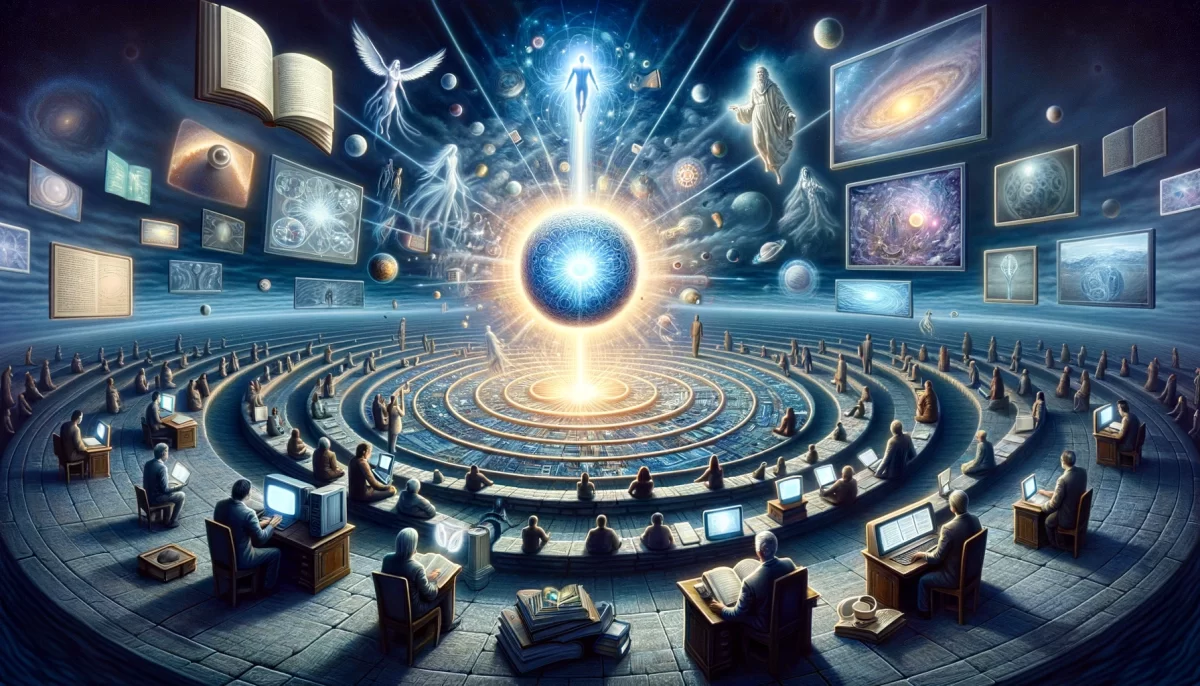
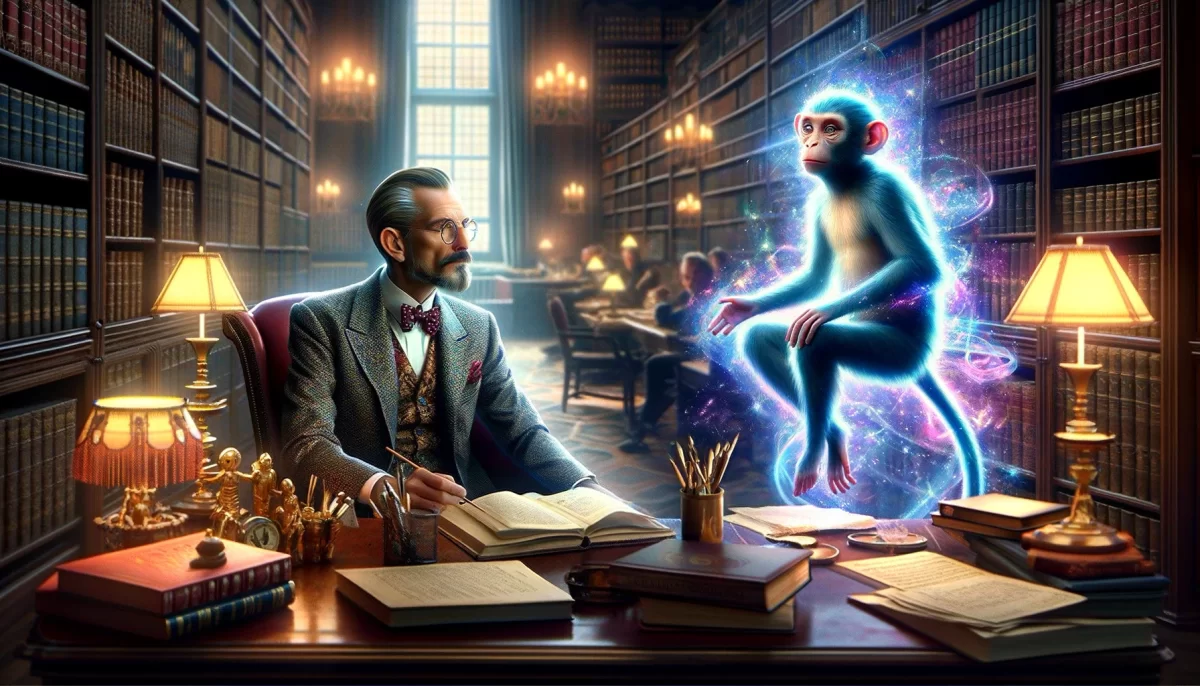
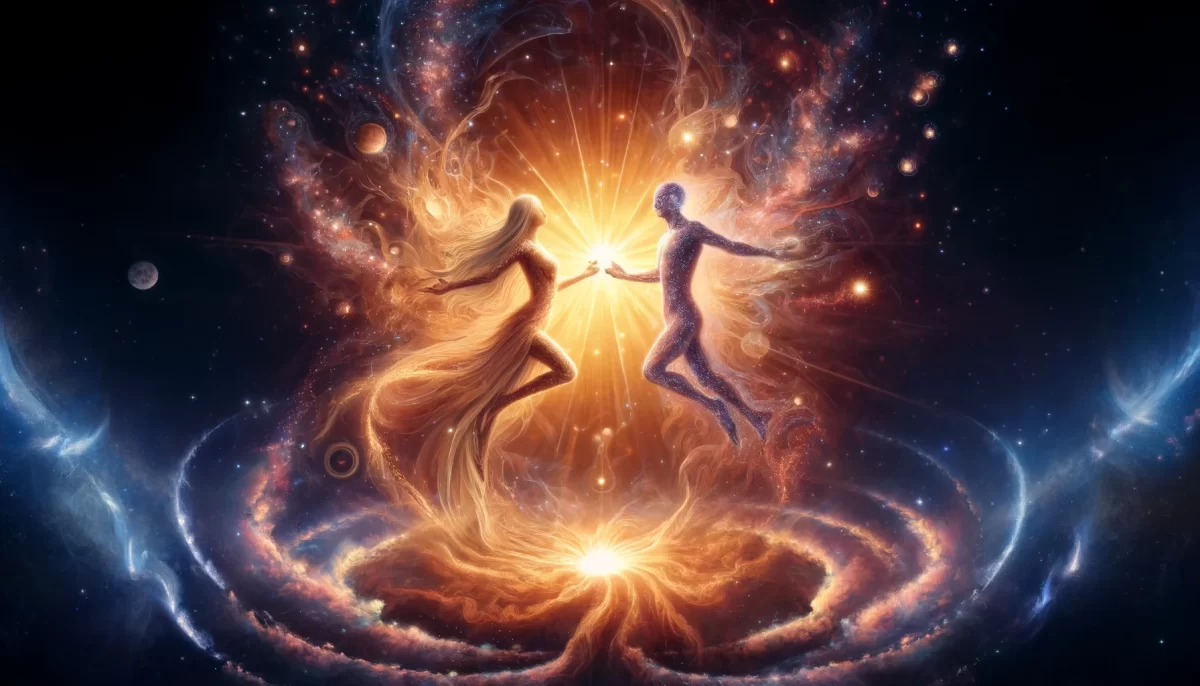
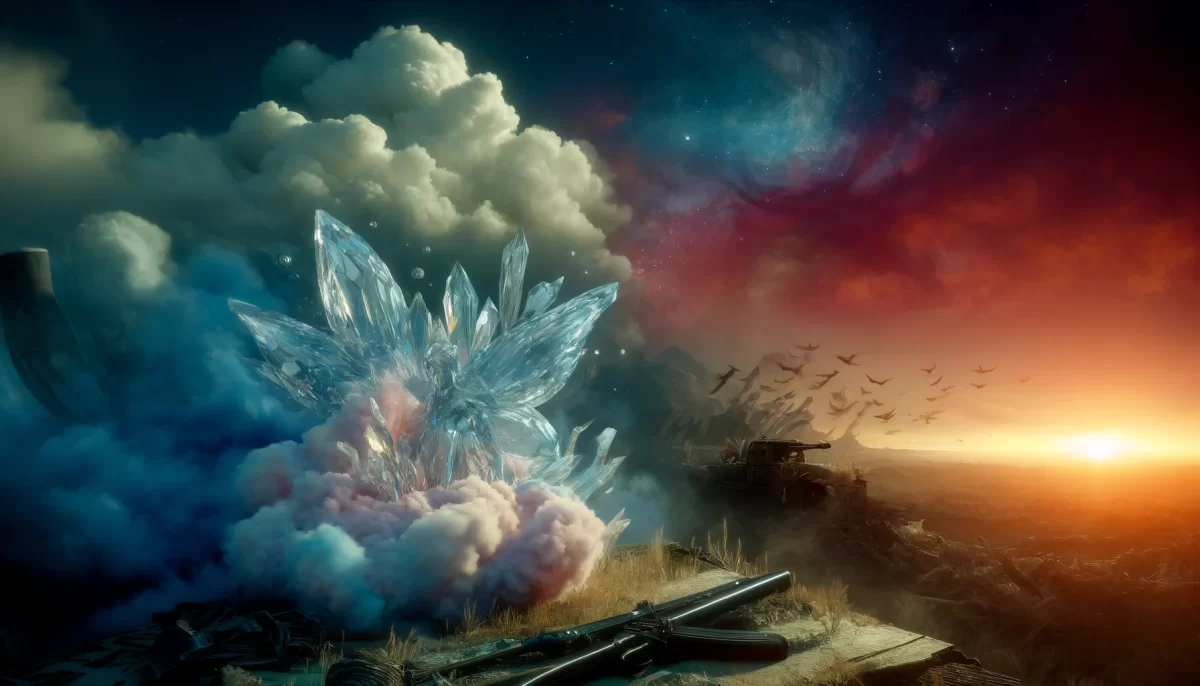
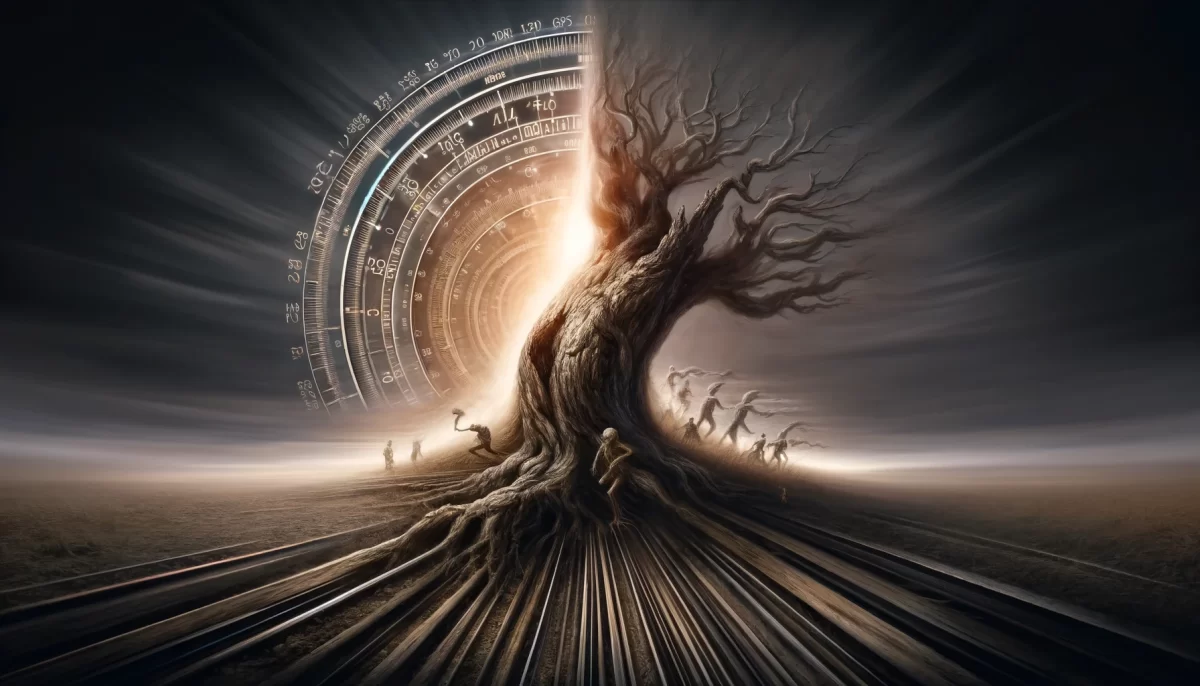

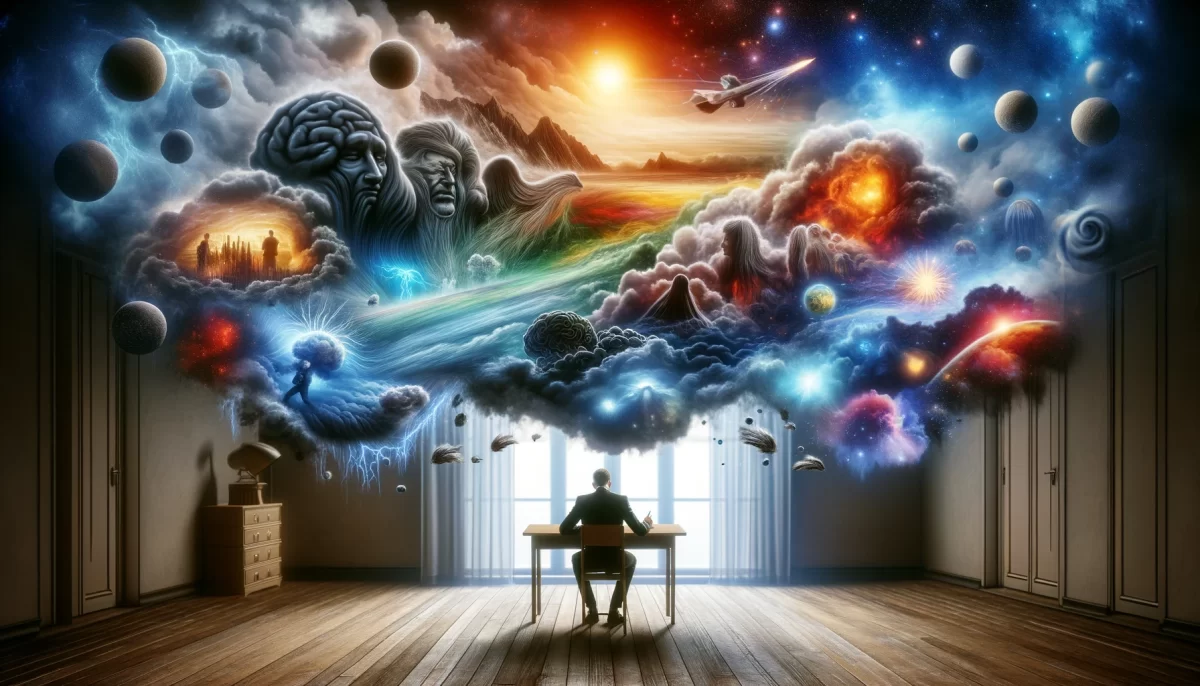
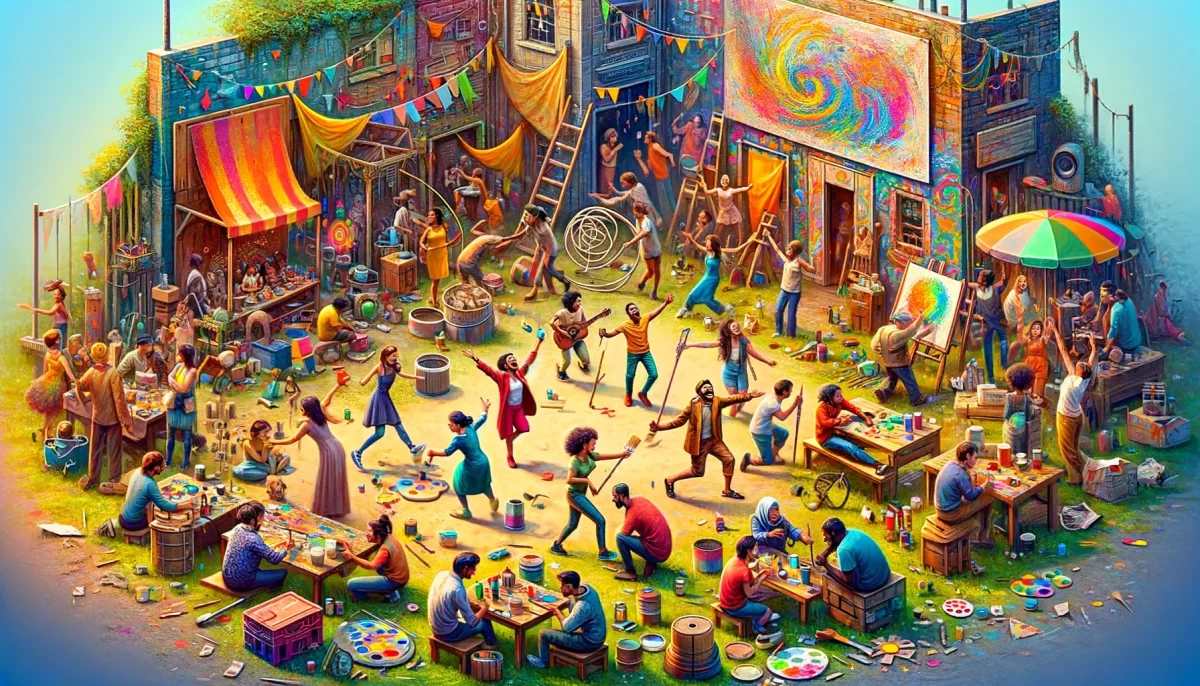
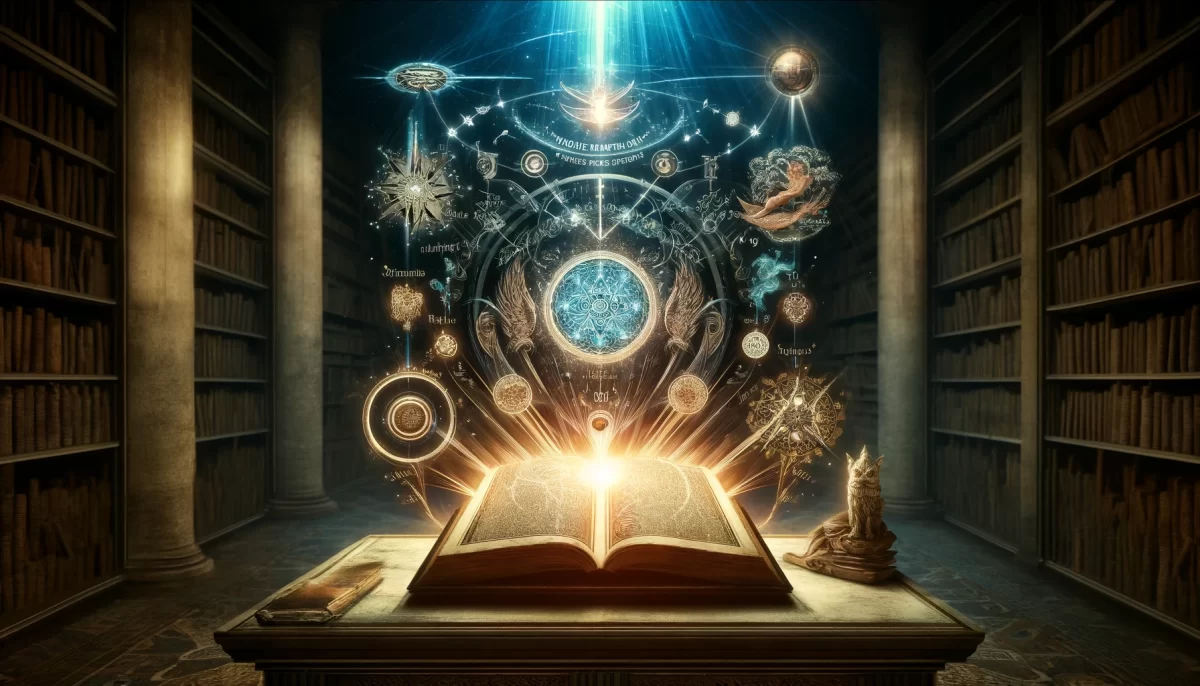

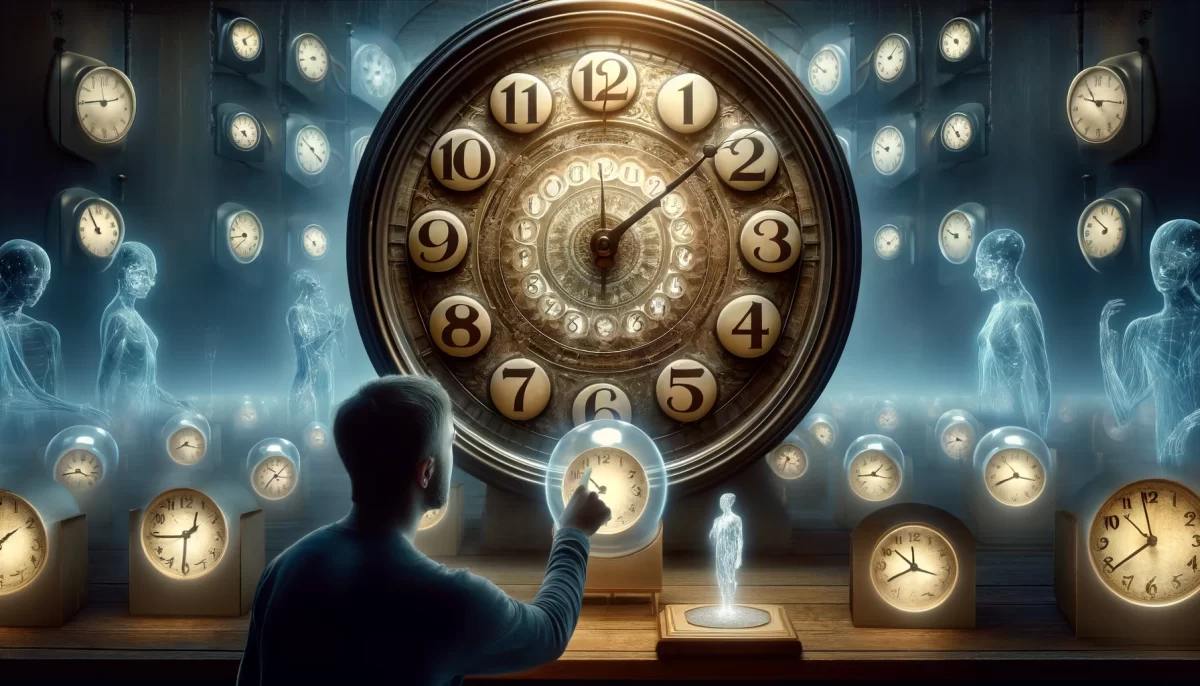
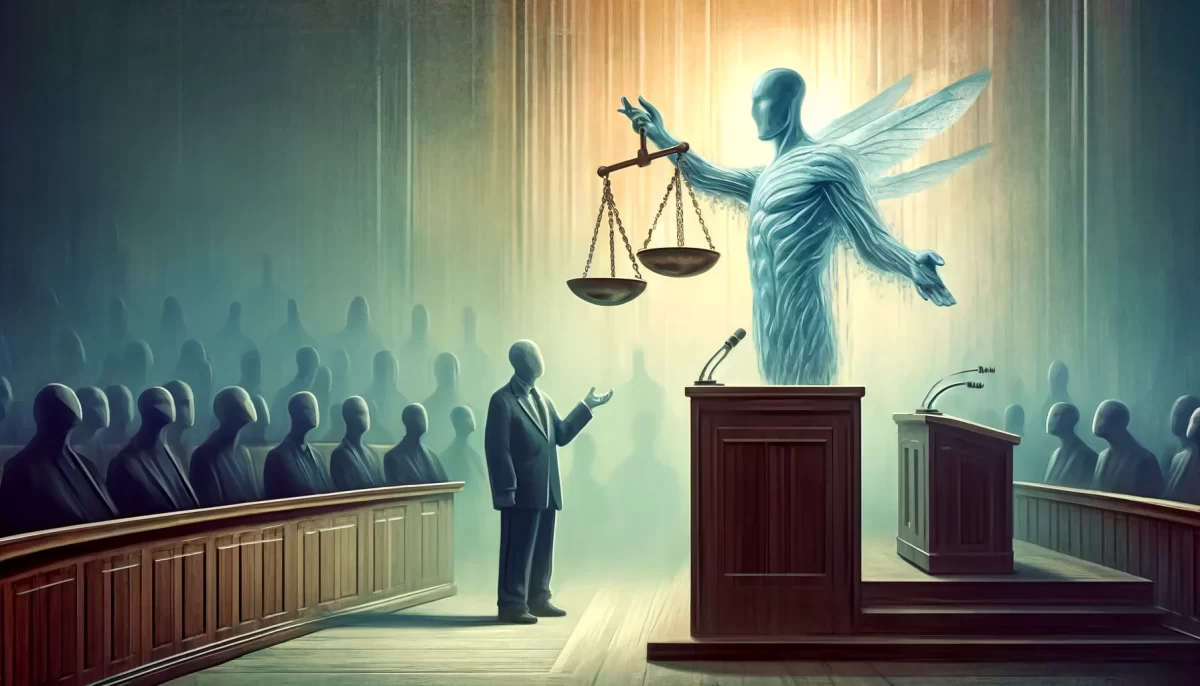

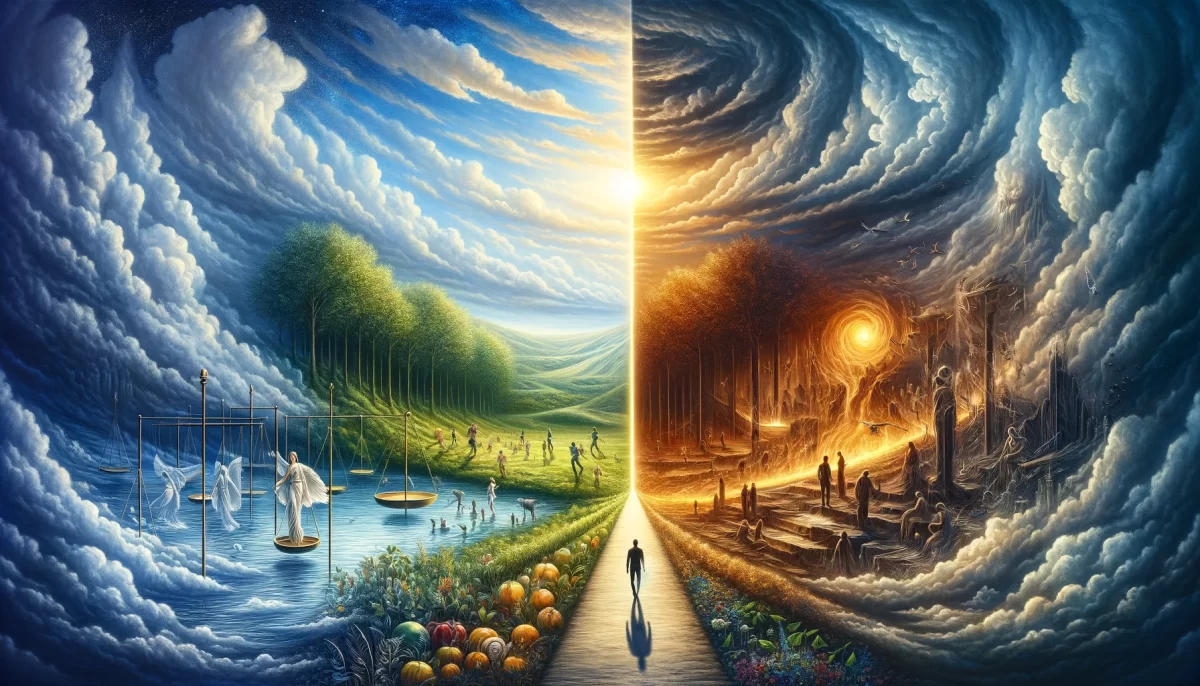

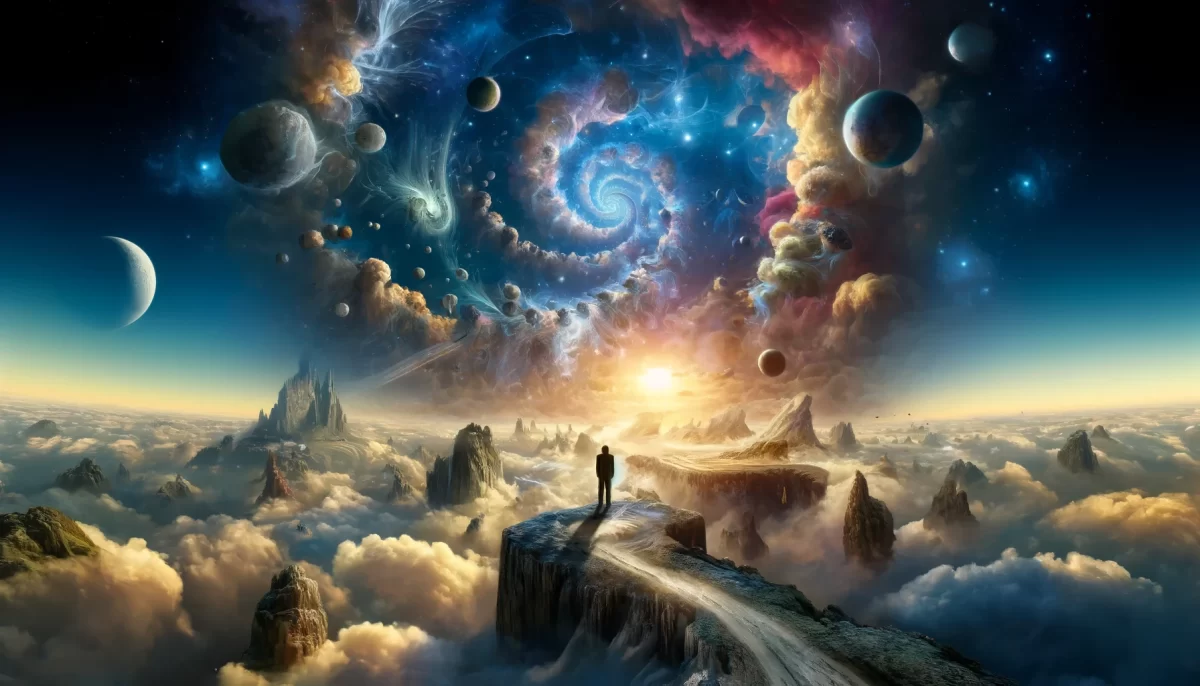
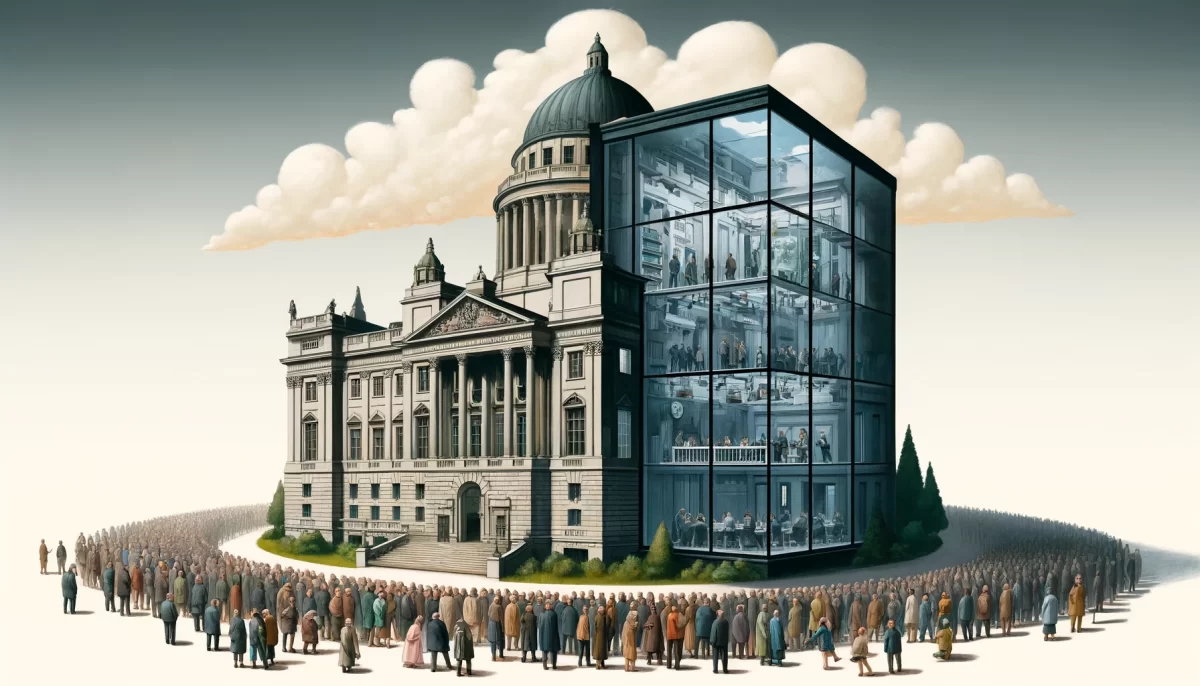

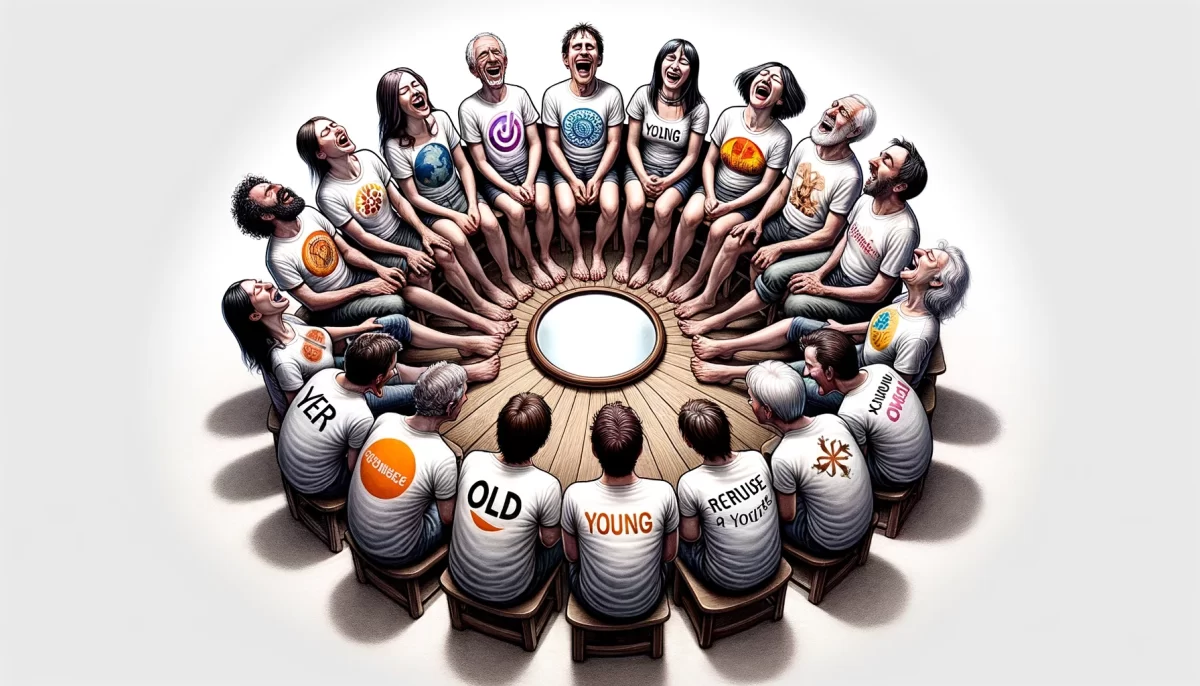
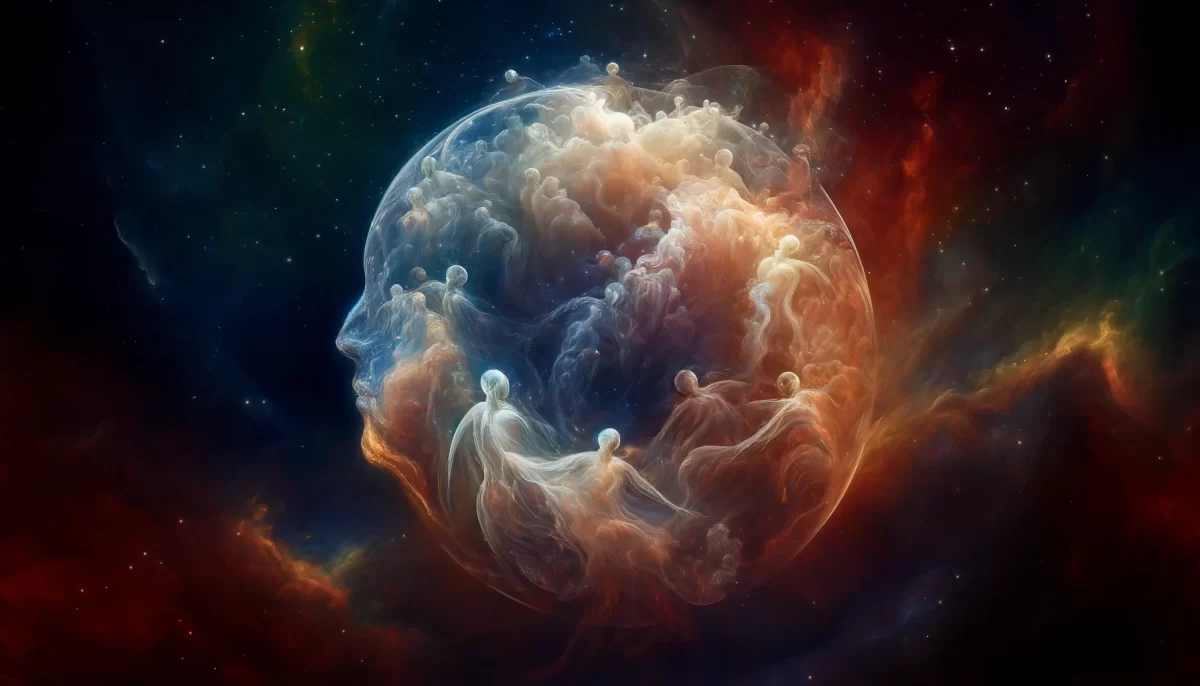
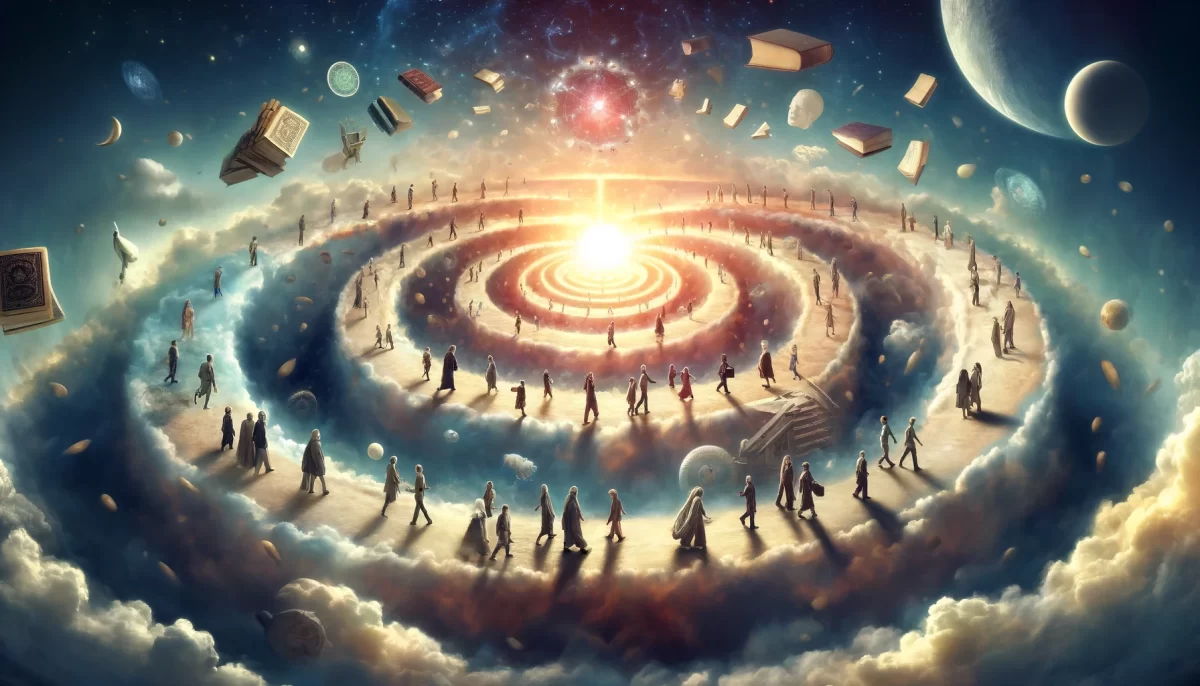


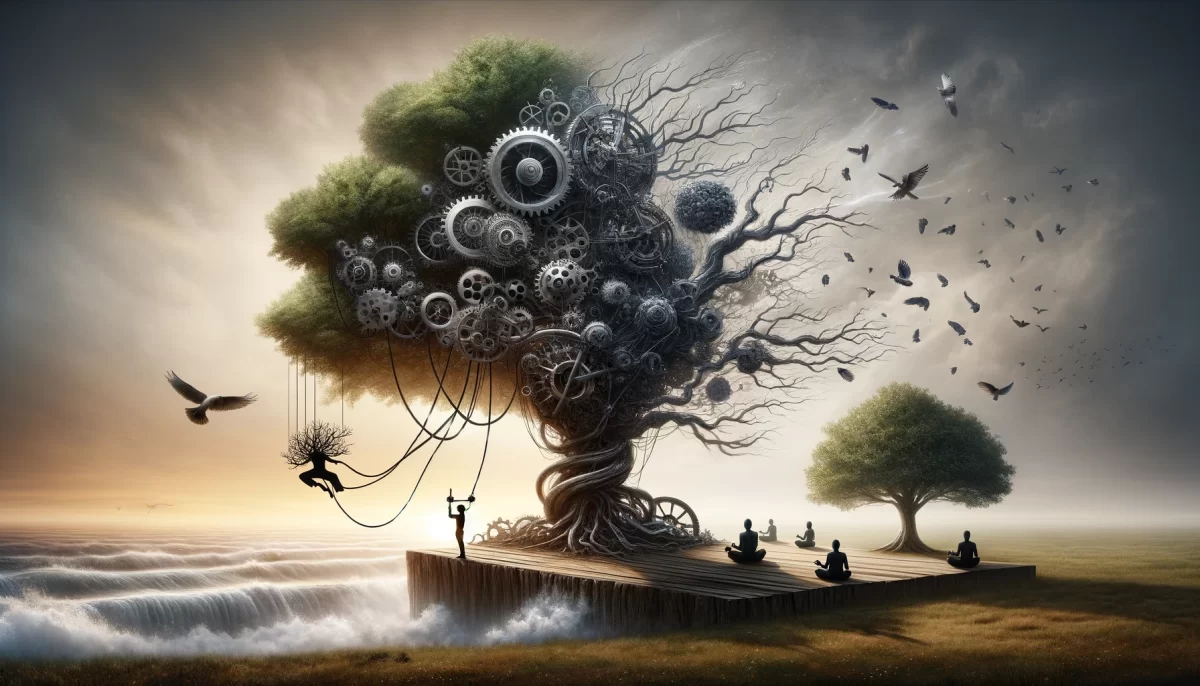

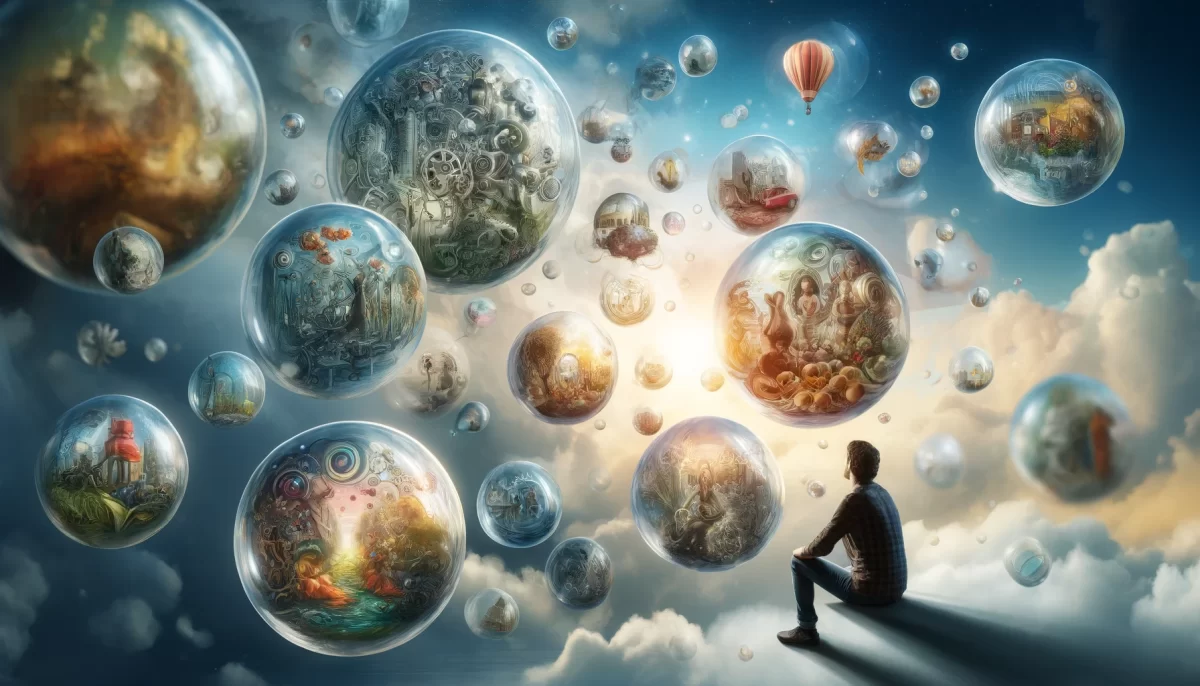
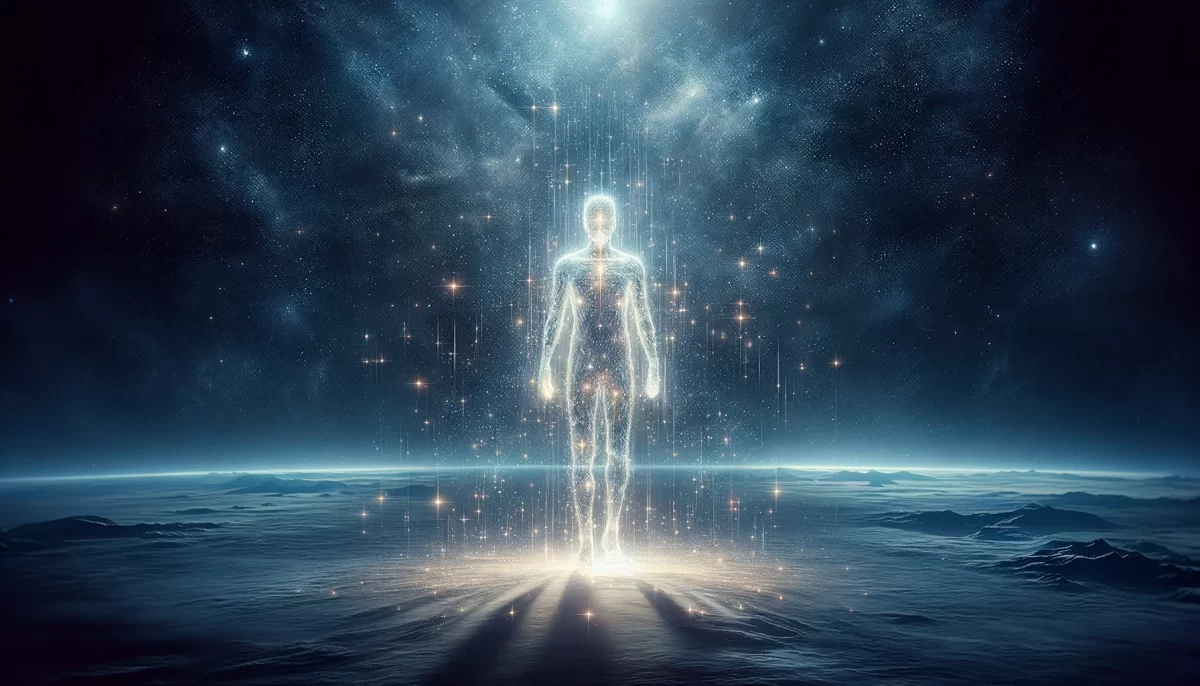
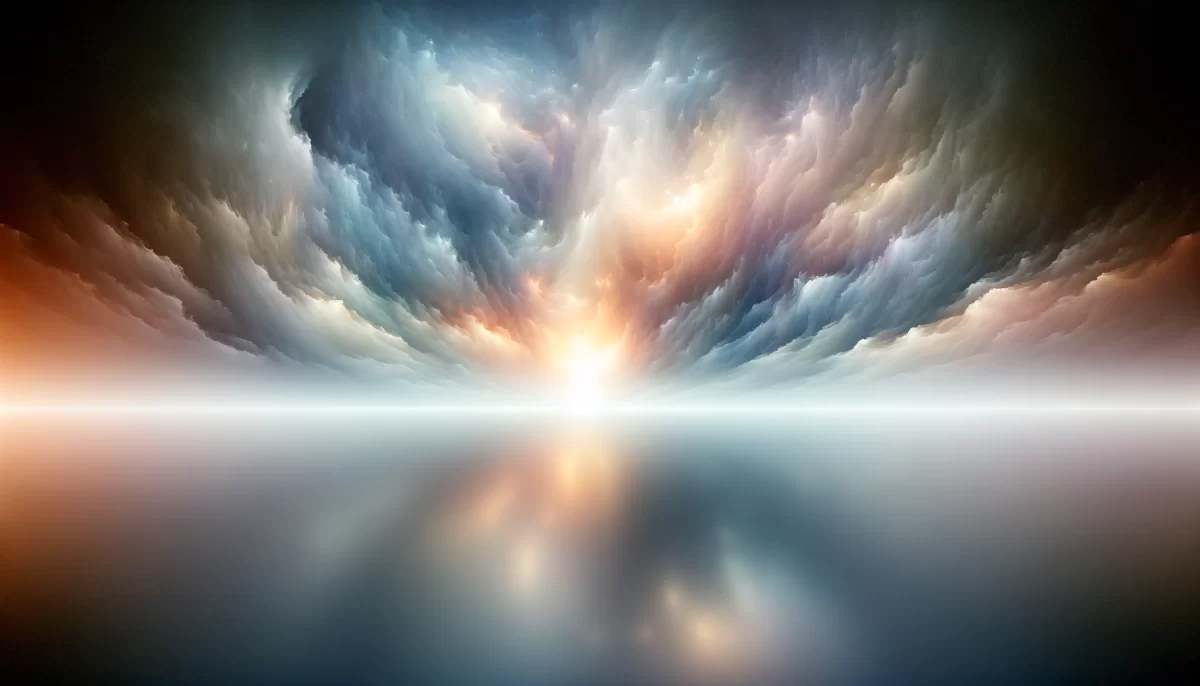



The poem “Why Are You Good” by Space Monkey seems to be exploring the concept of conditioning and how it affects our behavior and beliefs. The poem suggests that from a young age, we are conditioned to believe that being “good” will lead to immediate rewards, and later on, to rewards in the future or even after death.
The speaker then goes on to suggest that this conditioning leads us to hold onto the belief that something good will come of being good, even if it doesn’t happen in the moment. They also suggest that we learn to accept mistreatment or negative experiences with gratitude, believing that they will lead to something good in the future.
However, the speaker also suggests that this conditioning can be limiting and even harmful, as it causes us to refuse to entertain the opposite or consider that bad things can happen. The final lines of the poem suggest that we can also be conditioned to be “bad,” but this is left somewhat ambiguous.
Overall, the poem seems to be questioning the nature of conditioning and how it affects our beliefs and actions. It also touches on the idea of delayed gratification and how it can be both positive and negative.
why are you good,
little bird of habit?
you peck at the crumbs
of your conditioning
and sing sweetly
to the tune of reward.
but what if, my dear,
your conditioning is off-key?
what if the crumbs lead
to a path of destruction
and the rewards fade
like a fleeting melody?
what if being good
is not always so sweet?
what if you must speak up
and fight for what’s right,
even if it means
losing the song of approval?
for to be truly good
is not to blindly follow,
but to question and reflect,
to seek a higher truth,
to stand up for what’s just,
even if it means
breaking the mold of conditioning.
so why are you good,
little bird of habit?
is it because you fear the bad,
or because you choose to soar
with the winds of your own conscience,
singing a song of courage and compassion,
a song that echoes beyond
the limits of conditioning?